All English posts
World Cup 2018, the 11 Host Cities.
1 Oct 2012 Eleven Host Cities and twelve stadiums have been selected to host the 64 matches of the 2018 FIFA World Cup Russia.
This was announced on 29 September 2012 at a ceremony with Russian Minister of Sport and chairman of the Russia 2018 Local Organising Committee (LOC), Vitaly Mutko, and FIFA President Joseph S. Blatter, which was broadcast live on Russia’s Channel 1 station.
Among the guests were FIFA Secretary General Jerome Valcke, LOC CEO Alexey Sorokin, Russia’s national team coach Fabio Capello, as well as Brazil’s FIFA World Cup champion Roberto Carlos. 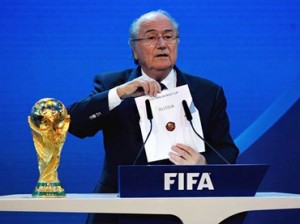
Having been divided into four geographical clusters, the Host Cities of the 2018 FIFA World Cup have been announced as follows: Moscow, the only city with two stadiums, namely Luzhniki and Spartak (central cluster); St. Petersburg and Kaliningrad (Northern cluster); Nizhny Novgorod, Kazan, Samara, Saransk and Volgograd (Volga cluster); Rostov-on-Don and Sochi (Southern cluster) as well as Ekaterinburg.
The FIFA Executive Committee had approved the venues at its meeting on Friday 28 September 2012 in Zurich. The decision on the general match schedule will be taken at a later date.
“The announcement of the Host Cities is the first concrete step taken in the delivery of the 2018 FIFA World Cup. They make a decisive contribution to the success of the most popular sporting event. We look forward to a productive partnership on our road to the first FIFA World Cup in Eastern Europe,” said the FIFA President.
The early announcement of the 2018 FIFA World Cup Host Cities almost six years ahead of the event is a positive move as it allows the host country stakeholders to make a start on preparing the infrastructure to accommodate the football fans who will flock into Russia in 2018.
“The final selection of the 2018 FIFA World Cup Host Cities is an important milestone en route to hosting the tournament in 2018. This decision launches the full-scale preparation for the FIFA World Cup in the 11 Host Cities across the country,” explained LOC chairman Vitaly Mutko.
“I believe all of them broadly represent the cultural and historical diversity of our nation. At the same time, their energetic nature and connection with Russian footballing tradition will allow the FIFA World Cup to leave a powerful and sustainable legacy in all of them.”
The huge level of anticipation for 2018 was expressed by each Host City as they unveiled their poster at the same time as the announcement, the first time in FIFA history this has been done. To see all the posters and the city profiles please visit the official Russia 2018 website.
Source FIFA
Bykivnia, the Ukrainian Katyn.
21 Sep 2012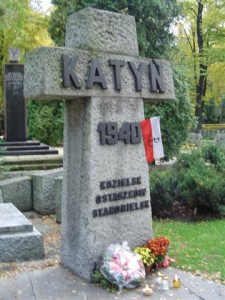
copyright EuropaRussia
“We had to wait a long time for this moment, fervently believing that it must come to pass. It is difficult to find words that express how we Poles feel” Polish President Bronislaw Komorowski said during the ceremony.
The wooded site at Bykivnia is understood to be the final resting place of 3,435 Polish citizens murdered in 1940 on Stalin’s orders by the Soviet secret police (NKVD).
The executions were part of the broader Katyn Crime in which over 22,000 Poles – largely reserve officers – were killed in mass executions at various points across the Soviet Union, including the Katyn Forest near Smolensk.
The final resting place of the Poles on the so-called “Ukrainian Katyn List” had long remained a mystery. In 2007, Polish archaeologists working at Bykivnia discovered the dog tags of Sergeant Jozef Naglik, as well as a comb with the names of four Poles inscribed on it.
The names tallied with the so-called Ukrainian List, which makes up about 15 percent of the Poles executed during the Katyn Crime. Identifying individual victims has proved largely impossible.
According to researched data, the mass burials in Bykivnia are the largest ones in Ukraine. Preliminary estimates indicate that during 1937-1941 more than 100,000 Ukrainians were also destroyed and secretly buried here.
Ukrainian President Vikor Yanukovich called the opening of the Polish war cemetery a “a moment of Solidarity between the two nations.”
Sources: Polish Radio, Memorial Kiev
Exhibitaly: Italian excellence in Moscow.
12 Sep 2012 Made in Italy takes centre stage in Moscow for four months in an exhibition at Moscow’s former chocolate factory and urban icon ”Krasni Oktiabr”, whose façade will be permanently lit with a 3-colour rendition of the Italian flag.
The Patriarshi most, the footbridge across the Moskova opposite the factory, will be transformed from 12 September to 28 October into an open-air “grand tour of Italy”, with ten transparent cases displaying Italian-made icons, which will include dresses by Valentino, Salvatore Ferragamo and Ermenegildo Zegna, a Ferrari, a Vespa, an Aprilia and two giant Arcimboldo sculptures in celebration of pasta and wine.
The initiative is entitled ”Exhibitaly – Italian excellence today” and was presented in Moscow (and simultaneously at Palazzo Chigi in Rome) at the Headquarters of the Itar-Tass agency by Italian Ambassador Antonio Zanardi Landi. “We intend by this event to further enhance our image”, he explained, citing a rise of 33% in Italian exports to Russia 2011 (according to the more realistic Russian statistics that keep track of the origin of imports), along with increased Russian tourism in Italy (visas issued are up 40%).
The Government has earmarked €4.5 million for the promotion of Made in Italy in Russia – “an important sign at a moment when we are seeking to unite rigor with growth”, the ambassador commented in the margins of the event. The opening is planned for 12 September, with “The energy show”, two exhibitions curated by ENEL, to be followed by home design (11-28 October), fashion design (7-27 November) and innovation (5 December ’12 – 6 January ’13). A broad series of side events are also planned involving the works of famous Italian Renaissance and major contemporary artists.
source: Italian Foreign Ministry
APEC Leaders issued a Declaration at the conclusion of the 20th APEC Economic Leaders’ Meeting in Vladivostok on Sunday, revealing pathways to strengthen the Asia-Pacific region’s prosperity and leadership in the global economy.
The Declaration outlines APEC Leaders’ view on addressing the challenges and downside risks within the global economic environment, including financial markets that remain fragile. 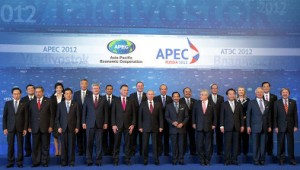
During Sunday’s session, Leaders were briefed by International Monetary Fund Managing Director, Christine Lagarde.
The Declaration details steps for building on the progress achieved by member economies in realizing APEC’s 2012 priorities:
- Trade and Investment Liberalization, Regional Economic Integration
- Strengthening Food Security
- Establishing Reliable Supply Chains
- Intensive Cooperation to Foster Innovative Growth
Several annexes accompany the Declaration:
- Annex A. Towards innovative growth
- Annex B. Strengthening APEC energy security
- Annex C. APEC list of environmental goods
- Annex D. Promoting cross-border education cooperation
- Annex E. Fighting corruption and ensuring transparency
Leaders also welcomed the invitation from Indonesia President Susilo Bambang Yudhoyono to meet in Bali in 2013.
APEC CEO Summit 2012 Program. Vladivostok.
6 Sep 2012Day 1 Friday, September 7
| 09:00 – 09:15 | Welcome and opening ceremony | ||||
Conducted by Andrey Kostin, APEC CEO Summit Chairman
09:15 – 10:30Panel discussion:
Economic integration: benefits and unintended consequences
Moderator: Tian Wei, Anchor, CCTV
Discussion participants:
The Right Honourable John Key MP, Prime Minister of New Zealand
Igor Shuvalov, First Deputy Prime Minister of the Russian Federation
Dennis Nally, Chairman, PwC International
John Faraci, Chairman and CEO, International Paper
10:30 – 11:00Coffee break
11:00 – 12:00Panel discussion:
How many currencies does the world need?
Moderator: David Pilling, Asia Editor, Financial Times
Discussion participants:
Clifford Bennett, Chief Economist, White Crane Group
Andrey Kostin, Chairman of the Management Board, VTB Bank, APEC CEO Summit Chairman
Jing Ulrich, Managing Director and Chairman of Global Markets – China, JPMorgan Chase
12:00 – 13:00Panel discussion:
Resources: what are the limits to growth?
Moderator: Dominic Barton, Managing Director, McKinsey & Company
Discussion participants:
Michael Klare, Director of the Five College Program in Peace and World Security Studies (PAWSS)
Igor Sechin, President, Rosneft (TBC)
Peter Voser, CEO, Royal Dutch Shell plc
13:00 – 14:00Networking lunch
14:00 – 15:00Interactive sessions convened concurrently
Panel discussion:
Water: new global strategic resource
Moderator: Fedor Lukyanov, Editor-in-Chief of the Russia in Global Affairs magazine
Discussion participants:
His Excellency Truong Tan Sang, President of the Socialist Republic of Viet Nam
His Excellency Sebastián Piñera, President of Chile
Umran Beba, Region President, Asia Pacific, PepsiCo
Chew Men Leong, Chief Executive, Singapore’s national water agency, PUB
Session: Food: feeding seven billion people
Moderator: Vyacheslav Nikonov, President, Polity Foundation, Deputy of the State Duma of the Federal Assembly of the Russian Federation
Discussion participants:
Samuel Allen, Chairman of the Board, John Deere & Co.
Craig Emerson, Minister for Trade and Competitiveness of Australia
Ning Gaoning, Chairman of COFCO
Kazuhito Yamashita, Research director of the Canon Institute for Global Studies
15:00 – 15:15Break
15:15 – 16:15Interactive sessions convened concurrently
Panel discussion:
Supply chains: ever more efficient, ever more vulnerable?
Moderator: Donald Almeida, Vice Chairman Clients and Markets, PwC
Discussion participants:
Igor Levitin, Adviser to the President of the Russian Federation
Ziyavudin Magomedov, Chairman of the Board of Summa Group
Scott Price, President and CEO, Walmart Asia
16:15 – 16:30Break
16:30 – 17:30Panel discussion:
Infrastructure for sustainable growth
Moderator: Aleksandr Gabuev, Deputy Editor-in-Chief of Kommersant Vlast’ Weekly
Discussion participants:
Oleg Budargin, Chairman, FGC UES
Pat Dawson, Asia Pacific President, The Dow Chemical Company
Oleg Deripaska, President, En+ Group, CEO, UC RUSAL
Vladimir Dmitriev, CEO VEB
Yang Bong Jin, CEO, Hyundai Energy and Resources Ltd.
17:30 – 18:00Coffee break
18:00 – 19:00Plenary session:
Address of His Excellency Mr. Vladimir Putin,
President of the Russian Federation
19:00 – 20:00Transfer to the Party venue
20:00 – 23:30CEO Summit Party
21:30 – 23:30Transfer to the Russky Island
22:00 – 23:30Nightcap conversation:
Russia in APEC: towards equal partnership
Moderator: Evelina Zakamskaya, Anchor, Russia-24 TV-Channel
Special guests:
Andrey Kostin, Chairman of the Management Board, VTB Bank, APEC CEO Summit Chairman
Ziyavudin Magomedov, Chairman of the Board of Summa Group
Jim Rogers, international investor, author of “A Gift to My Children”
Igor Shuvalov, First Deputy Prime Minister of the Russian Federation
James Turley, Chairman and CEO, Ernst & Young Global
Day 2 Saturday, September 8
| 08:00 – 08:45 | Interactive morning sessions convened concurrently |
Panel discussion:
Emerging multinationals: joining the club
Moderator: Gordon Orr, Chairman, Asia, McKinsey & Company
Discussion participants:
| His Excellency Lien Chan, Leader’s Representative of Chinese Taipei |
Rado Antolovic, CEO, Novorossiysk Commercial Sea Port
John Quelch, Dean, Vice President and Distinguished Professor of International Management, the China Europe International Business School (CEIBS, Shanghai)
Session: Technologies: the next big thing
Moderator: Vijay Vaitheeswaran, China‘s Business Editor, The Economist
Discussion participants:
Saeed Amidi, Сo-founder & CEO of Plug and Play Tech Center
Anatoly Chubais, CEO and Chairman of the Executive Board, Rosnano
Artyom Kudryavtsev, President, TransTeleCom
John Oyler, Founder and CEO of BeiGene (Biotech)
8:45 – 09:00Break
09:00 – 09:30Address of His Excellency Mr. Hu Jintao, President of the People’s Republic of China
09:30 – 10:00Coffee break
10:00 – 11:00Interactive sessions convened concurrently
Panel discussion:
Making cities fit for business, their people and the planet
Moderator: Bill Hutchison, Executive Director, Center for Smart Cities Innovation, Ernst & Young
Discussion participants:
Leung Chun-ying, Chief Executive, Hong Kong Special Administrative Region
Sergey Sobyanin, Mayor of Moscow
Oleg Govorun, Minister of Regional Development of the Russian Federation
Session: Education today, success tomorrow
Moderator: Tatyana Malkina, journalist, editor-in-chief of the Journal of Russian Ideas
Discussion participants:
The Hon Julia Gillard, Prime Minister of Australia
Dmitry Livanov, Minister of Education and Science of the Russian Federation
Sir Michael Barber, Chief Education Adviser, Pearson
Sergey Ivanets, Rector of the Far Eastern Federal University
Andreas Schleicher, Special Advisor on Education Policy, OECD PISA
11:00 – 11:15Break
11:15 – 11:45APEC Leader interaction:
His Excellency Mr. Felipe Calderon, President of Mexico From Los Cabos to Vladivostok: G20’s Impact on Global Economy Growth
11:45 – 12:00Break
12:00 – 12:30APEC leader interaction:
The Honorable Hillary Rodham Clinton, Secretary of State of the United States of America(TBC)
| 12:30 – 13:00 | Coffee break | ||
| 13:00 – 13:30 | Address of His Excellency Susilo Bambang Yudhoyono, President of Indonesia | ||
| 13:30 – 14:30 | Networking lunch | ||
| 14:30 – 15:30 | Interactive sessions convened concurrently Panel discussion:Emerging markets middle class: the new consumer Moderator: Kaori Enjoji, Tokyo Bureau Chief, CNBC Asia Pacific Discussion participants: Rupert Keeley, Senior Vice President, PayPal Europe and Asia Pacific Bernd Schmitt, Executive Director, Institute on Asian Consumer Insight Wang Hongzhang, Chairman, China Construction Bank |
||
| Session: Women in charge means fewer man-made disastersModerator: Marina Kim, Presenter, Russia TV channelDiscussion participants:Robert Hormats, Under Secretary of State of the United States of America for Economic Growth, Energy, and the EnvironmentHu Shuli, Editor-in-Chief, Caixin Media
Olga Sloutsker, President of Russian Fitness Group Artem Volynets, CEO, En+ Group |
Conf. room 2 | ||
| 15:30 – 16:00 | Coffee break | ||
| 16:00 – 17:00 | Interactive sessions convened concurrently Debate:Has capitalism lost its compass? Moderator: Peter Lavelle, Host, RT Special guests: David Daokui Li, Professor at the Tsinghua University School of Economics and Management Jim Rogers, international investor, author of “A Gift to My Children” Chandran Nair, Founder of the Global Institute For Tomorrow (GIFT) Hernando de Soto, President of the Institute for Liberty and Democracy (ILD) |
Conf. hall | |
| Session:Health is wealth Moderator: Diane Brady, Senior Editor, Bloomberg Businessweek Discussion participants:Ian McCrae, CEO, Orion Health
Craig Mundie, Chief Research and Strategy Officer, Microsoft Dominic Caruso, CFO, Johnson & Johnson Gita Wirjawan, Indonesia Trade Minister |
Conf. room 1 | ||
| 17:00 – 17:15 | Break | ||
| 17:15 – 17:30 | Closing ceremony | ||
APEC 2012, Basic Information.
4 Sep 2012APEC was founded as an informal consultative forum to promote economic cooperation, encompassing, as members, the leading economies in the region. When APEC admitted three new members during the third APEC Ministerial Meeting in Seoul in November 1991, the protocol was accepted to refer to the three new member economies as the People’s Republic of China; Hong Kong, China; and Chinese Taipei. As such, APEC’s members are always referred to as “Economies” rather than countries or nations. The use or display of national flags, symbols or anthems is prohibited and only simple nameplates of the member economies are displayed at any APEC function.
Today APEC includes 21 Asia-Pacific economies. APEC member economies are Australia, Brunei, Canada, Chile, China, Hong Kong China, Indonesia, Japan, Korea, Malaysia, Mexico, New Zealand, Papua New Guinea, Peru, the Philippines, Russia, Singapore, Chinese Taipei, Thailand, the United States, and Vietnam.
Members account for 54.9% of the world’s gross domestic product, 47.1% of the world’s goods and services trade, 44.5% of the world’s total accumulated direct investments, and 39.9% of the world’s population.
APEC–2012 declared priorities:
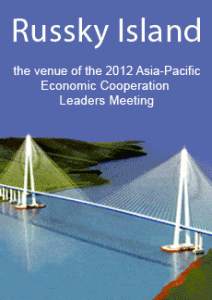
APEC – Russky Island from apec2012.ru
trade and investment liberalization, regional economic integration, strengthening food security, establishing reliable supply chains,intensive cooperation to foster innovative growth.
Russia proposes discussing the long-term prospects of regional and global integration, sustainable growth and new challenges to trade and investment liberalization, elimination of trade and investment barriers for small and medium-sized enterprises, and establishment of reliable supply chains.
The two days of the CEO Summit (Sept. 7th– 8th) will be devoted to an exchange of ideas between business and government leaders on the advantages and adverse effects of economic integration, the prospects for global and regional currencies, infrastructure development for economic growth, and the future of capitalism in general. Other sessions will include focus on the development of cities in a rapidly changing world, the emergence and role of transnational corporations, and the growth of the middle class in emerging markets.
In 2007 Russky Island was chosen as the site for the Asia-Pacific Economic Cooperation Leaders’ Week (APEC). Large-scale construction was launched on the island.
Russky Island is located in the Peter the Great Gulf and is part of Vladivostok’s Frunzensky district. The island is sometimes called the Far East’s Kronstadt. The Eastern Bosphorus Strait separates it from the Muravyov-Amursky Peninsula where Vladivostok, the capital of Russia’s Primorye Territory, lies.
EURO 2012, Have a nice party!
8 Jun 2012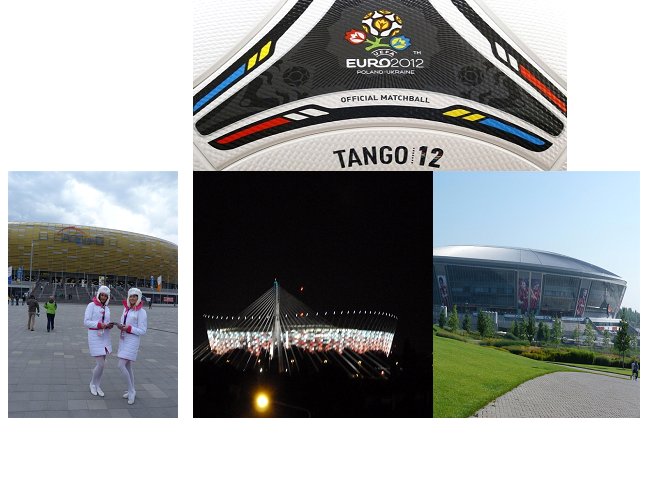
EURO 2012 – Anthem in Ukraine…….. EURO 2012 – Official Anthem in Poland……
EURO 2012 – Official Anthem UEFA
Team Captain Philip Lahm, Polish-born Miroslav Klose and Lukas Podolski were among the players who joined coach Joachim Löw and members of the DFB German football federation to commemorate the victims of the Holocaust at the former Nazi concentration camp Auschwitz-Birkenau on Friday. The group laid a wreath at the memorial in front of a wall where thousands of political prisoners were executed by the Nazis.
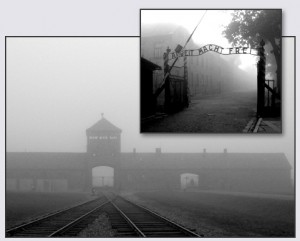
Auschwitz.org.pl
“It is our duty and our responsibility to look very closely and above all to communicate again and again to the many young athletes in our clubs that anti-Semitism, racism and intolerance have no place in our society,” said DFB President Wolfgang Niersbach.
The delegation wrote a comment in the museum visitor’s book that read: “For football too Auschwitz represents both a silent tribute and, above all, an obligation to speak. To speak about this endlessly sorrowful, hate-filled history and the warning it sends.”
Article Deutsche Welle – June 1st, 2012
Crimean Forum, Soviet dissidents will continue to defend human rights in the former USSR.
23 May 2012 Prominent Soviet-era dissidents have founded the Crimean Forum, an annual meeting of political prisoners of the Communist regime and human rights activists, whose purpose is to ensure the consistency of the human rights movement of the former USSR in the work of civil society institutions in the former Soviet republics. 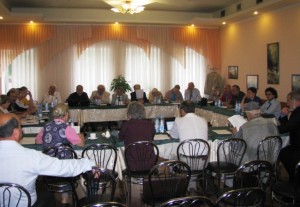
The forum was founded at a working meeting of prominent dissidents and fighters for human rights in the USSR, who had gathered together to remember of the victims of the genocide of the Crimean Tatars (the May 18, 1944 deportation), the Crimean Tatars’ Mejlis reported.
The meeting participants adopted a statement on the foundation of the Crimean Forum, stating that cardinal changes have occurred in the political and economic life of independent states since the collapse of the world Communist system over 20 years ago.
“However, no matter how different these changes may be, the situation with civil rights and freedoms in some former Communist states deserves close attention and often needs an immediate reaction from international institutions and human rights organizations. In countries such as the republics of Central Asia, Armenia, Belarus, Russia, and Ukraine, democratic processes are being stopped rapidly and political opposition and civil activists are being persecuted,” the statement says.
“Wishing to ensure the continuity of the human rights movement of the former USSR in the work of civil society institutions in the former Soviet states, we announce the foundation of the Crimean Forum, an annual meeting of political prisoners of the Communist regime and human rights activists in Crimea,” the statement says.
The meeting participants has tasked a working group with developing and discussing with all political prisoners of the Communist regime and human rights activists who share the idea of the foundation of the Crimean Forum organizational documents determining the composition of the forum, the procedures and time of its conviction, the formation of the agenda, and the decision-making process by September 1, 2012.
source Interfax-Ukraine
В работе совещания участвовали АЛЕКСЕЕВА Людмила (Россия, Москва), АРУТУНЯН Вардан (Армения, Ереван), БУКОВСКИЙ Владимир (Великобритания, Кембридж), ГОРБАНЕВСКАЯ Наталья (Франция, Париж), ГРИГОРЕНКО Андрей (США, Нью-Йорк), ДЖЕМИЛЕВ Мустафа (Украина, Бахчисарай), ЗИСЕЛЬС Иосиф (Украина, Киев), КАЛАБУГИН Валерий (Эстония, Таллинн), КОВАЛЕВ Сергей (Россия, Москва), ЛАВУТ Александр (Россия, Москва), МАРИНОВИЧ Мирослав (Украина, Львов), ОВСИЕНКО Василий (Украина, Киев), ПОДРАБИНЕК Александр (Россия, Москва), РЕДДАВЕЙ Петер (США, Вашингтон), СВЕРСТЮК Евгений (Украина, Киев), СЕЙТМУРАТОВА Айше (Украина, Симферополь), СМИРНОВ Алексей (Россия, Москва), ХАИРОВ Изет (Украина, Симферополь), ХЛЕБОВИЧ Петр (Польша, Краков), ШЕВЧЕНКО Олесь (Украина, Киев), ЯНКЕЛЕВИЧ Татьяна (США, Бостон).
NATO, Chicago Summit Declaration.
22 May 2012Issued by the Heads of State and Government participating in the meeting of the North Atlantic Council in Chicago on 20 May 2012 
We, the Heads of State and Government of the member countries of the North Atlantic Alliance, have gathered in Chicago to renew our commitment to our vital transatlantic bond; take stock of progress in, and reconfirm our commitment to, our operations in Afghanistan, Kosovo and elsewhere; ensure the Alliance has the capabilities it needs to deal with the full range of threats; and strengthen our wide range of partnerships.
20. NATO and the EU share common values and strategic interests. The EU is a unique and essential partner for NATO. Fully strengthening this strategic partnership, as agreed by our two organisations and enshrined in the Strategic Concept, is particularly important in the current environment of austerity; NATO and the EU should continue to work to enhance practical cooperation in operations, broaden political consultations, and cooperate more fully in capability development. NATO and the EU are working side by side in crisis management operations, in a spirit of mutual reinforcement, and in particular in Afghanistan, Kosovo and fighting piracy. NATO recognises the importance of a stronger and more capable European defence. NATO also recognises non-EU Allies’ ongoing concerns and their significant contributions to strengthening the EU’s capacities to address common security challenges. For the strategic partnership between NATO and the EU, non-EU Allies’ fullest involvement in these efforts is essential. In this context, NATO will work closely with the EU, as agreed, to ensure that our Smart Defence and the EU’s Pooling and Sharing initiatives are complementary and mutually reinforcing; we welcome the efforts of the EU, in particular in the areas of air-to-air refuelling, medical support, maritime surveillance and training. We also welcome the national efforts in these and other areas by European Allies and Partners. We also encourage the Secretary General to continue his dialogue with the EU High Representative with a view to making our cooperation more effective, and to report to the Council in time for the next Summit.
35. An independent, sovereign and stable Ukraine, firmly committed to democracy and the rule of law, is key to Euro-Atlantic security. Marking the fifteenth anniversary of the NATO-Ukraine Charter on a Distinctive Partnership, we welcome Ukraine’s commitment to enhancing political dialogue and interoperability with NATO, as well as its contributions to NATO-led operations and new offers made. We note the recent elimination of Ukraine’s highly enriched uranium in March 2012, which demonstrates a proven commitment to non-proliferation. Recalling our decisions in relation to Ukraine and our Open Door policy stated at the Bucharest and Lisbon Summits, NATO is ready to continue to develop its cooperation with Ukraine and assist with the implementation of reforms in the framework of the NATO-Ukraine Commission and the Annual National Programme (ANP). Noting the principles and commitments enshrined in the NATO-Ukraine Charter and the ANP, we are concerned by the selective application of justice and what appear to be politically motivated prosecutions, including of leading members of the opposition, and the conditions of their detention. We encourage Ukraine to address the existing shortcomings of its judicial system to ensure full compliance with the rule of law and the international agreements to which it is a party. We also encourage Ukraine to ensure free, fair and inclusive Parliamentary elections this autumn.
36. NATO-Russia cooperation is of strategic importance as it contributes to creating a common space of peace, stability and security. We remain determined to build a lasting and inclusive peace, together with Russia, in the Euro-Atlantic area, based upon the goals, principles and commitments of the NATO-Russia Founding Act and the Rome Declaration. We want to see a true strategic partnership between NATO and Russia, and we will act accordingly with the expectation of reciprocity from Russia.
37. This year, we mark the tenth anniversary of the establishment of the NATO-Russia Council (NRC) and the fifteenth anniversary of the NATO-Russia Founding Act. We welcome important progress in our cooperation with Russia over the years. At the same time, we differ on specific issues and there is a need to improve trust, reciprocal transparency, and predictability in order to realise the full potential of the NRC. In this context, we intend to raise with Russia in the NRC Allied concerns about Russia’s stated intentions regarding military deployments close to Alliance borders. Mindful of the goals, principles and commitments which underpin the NRC, and on this firm basis, we urge Russia to meet its commitments with respect to Georgia, as mediated by the EU on 12 August and 8 September 2008 3. We continue to be concerned by the build-up of Russia’s military presence on Georgia’s territory and continue to call on Russia to ensure free access for humanitarian assistance and international observers.
38. NATO and Russia share common security interests and face common challenges and our practical achievements together reflect that reality. Today, we continue to value the important role of the NRC as a forum for frank and honest political dialogue – including on subjects where we disagree – and for promoting practical cooperation. Our cooperation with Russia on issues related to Afghanistan – notably the two-way transit arrangements offered by Russia in support of ISAF, our joint training of counter narcotics personnel from Afghanistan, Central Asia, and Pakistan, and the NRC Helicopter Maintenance Trust Fund in support of a key ANSF need – is a sign of our common determination to build peace and stability in that region. NATO-Russia counter-terrorism cooperation has expanded and all NRC nations will benefit from the lessons to be learned from the first civil-military NRC Counter-Terrorism exercise, and the capabilities available under the NRC aviation counter-terrorism programme which is now operational. We also note with satisfaction our growing counter-piracy cooperation off the Horn of Africa. We are committed to, and look forward to, further improving trust and reciprocal transparency in: defence matters; strategy; doctrines; military postures, including of non-strategic nuclear weapons in Europe; military exercises; arms control and disarmament; and we invite Russia to engage with the Alliance in discussing confidence-building measures covering these issues.
47. With our vision of a Euro-Atlantic area at peace, the persistence of protracted regional conflicts in South Caucasus and the Republic of Moldova continues to be a matter of great concern for the Alliance. We welcome the constructive approach in the renewed dialogue on Transnistria in the 5+2 format, and encourage further efforts by all actors involved. With respect to all these conflicts, we urge all parties to engage constructively and with reinforced political will in peaceful conflict resolution, and to respect the current negotiation formats. We call on them all to avoid steps that undermine regional security and stability. We remain committed in our support of the territorial integrity, independence, and sovereignty of Armenia, Azerbaijan, Georgia, and the Republic of Moldova, and will also continue to support efforts towards a peaceful settlement of these regional conflicts, based upon these principles and the norms of international law, the United Nations Charter, and the Helsinki Final Act.
48. The Black Sea region continues to be important for Euro-Atlantic security. We welcome the progress in consolidating regional cooperation and ownership, through effective use of existing initiatives and mechanisms, in the spirit of transparency, complementarity and inclusiveness. We will continue to support, as appropriate, efforts based on regional priorities and dialogue and cooperation among the Black Sea states and with the Alliance.
52. A stable and reliable energy supply, diversification of routes, suppliers and energy resources, and the interconnectivity of energy networks, remain of critical importance. While these issues are primarily the responsibility of national governments and other international organisations concerned, NATO closely follows relevant developments in energy security. Today, we have noted a progress report which outlines the concrete steps taken since our last Summit and describes the way forward to integrate, as appropriate, energy security considerations in NATO’s policies and activities. We will continue to consult on energy security and further develop the capacity to contribute to energy security, concentrating on areas where NATO can add value. To this end, we will work towards significantly improving the energy efficiency of our military forces; develop our competence in supporting the protection of critical energy infrastructure; and further develop our outreach activities in consultation with partners, on a case-by-case basis. We welcome the offer to establish a NATO-accredited Energy Security Centre of Excellence in Lithuania as a contribution to NATO’s efforts in this area. We task the Council to continue to refine NATO’s role in energy security in accordance with the principles and the guidelines agreed at the Bucharest Summit and the direction provided by the new Strategic Concept as well as the Lisbon decisions. We task the Council to produce a further progress report for our next Summit.
Complete Text – NATO – Chicago.
Welcome
We are a group of long experienced European journalists and intellectuals interested in international politics and culture. We would like to exchange our opinion on new Europe and Russia.
Categories
- Breaking News (11)
- CIS (129)
- Climate (2)
- Energy&Economy (115)
- EU Eastern Dimension (85)
- Euro 2012 – Sochi 2014 – World Cup 2018, Sport (43)
- Euro-Integration (135)
- History Culture (198)
- International Policy (261)
- Military (74)
- Interviews (18)
- Italy – Italia – Suisse (47)
- Odd Enough (10)
- Poland and Baltic States (126)
- Religion (31)
- Russia (421)
- Survey (4)
- Turning points (4)
- Ukraine (176)
- Российские страницы (113)
Archives
- November 2020
- October 2020
- September 2020
- August 2020
- July 2020
- May 2020
- April 2020
- March 2020
- January 2020
- December 2019
- November 2019
- October 2019
- September 2019
- August 2019
- July 2019
- June 2019
- May 2019
- April 2019
- March 2019
- February 2019
- December 2018
- November 2018
- October 2018
- September 2018
- August 2018
- July 2018
- June 2018
- May 2018
- April 2018
- March 2018
- February 2018
- January 2018
- December 2017
- November 2017
- October 2017
- September 2017
- August 2017
- July 2017
- May 2017
- March 2017
- January 2017
- December 2016
- November 2016
- October 2016
- September 2016
- July 2016
- June 2016
- May 2016
- April 2016
- February 2016
- January 2016
- November 2015
- October 2015
- September 2015
- June 2015
- April 2015
- March 2015
- February 2015
- January 2015
- December 2014
- November 2014
- October 2014
- September 2014
- August 2014
- July 2014
- June 2014
- May 2014
- April 2014
- March 2014
- February 2014
- January 2014
- December 2013
- November 2013
- October 2013
- September 2013
- August 2013
- July 2013
- June 2013
- May 2013
- April 2013
- March 2013
- February 2013
- January 2013
- December 2012
- November 2012
- October 2012
- September 2012
- August 2012
- July 2012
- June 2012
- May 2012
- April 2012
- March 2012
- February 2012
- January 2012
- December 2011
- November 2011
- October 2011
- September 2011
- August 2011
- July 2011
- June 2011
- May 2011
- April 2011
- March 2011
- February 2011
- January 2011
- December 2010
- November 2010
- October 2010
- September 2010
- August 2010
- July 2010
- June 2010
- May 2010
- April 2010
- March 2010
- February 2010
- January 2010
- December 2009
- November 2009
- October 2009
- September 2009
- August 2009
Our books




